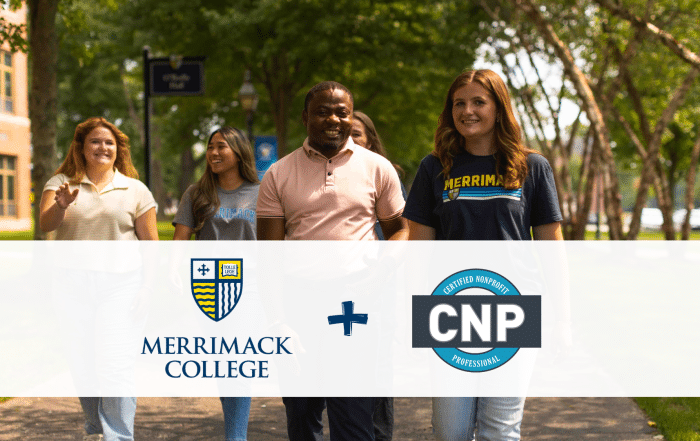Kansas City, Mo. – The Nonprofit Leadership Alliance is proud to welcome The Institute for Nonprofit Administration and Research at LSU Shreveport as the newest university to join its Certified Nonprofit Professional (CNP) Campus Partnership Program.
This partnership will provide all LSUS students with a preferred track to earn the nationally recognized Certified Nonprofit Professional (CNP) credential at a discounted rate. Guided by Stacey Hargis, LSUS’s dedicated Campus Director, students will embark on an exciting journey to drive meaningful change in the nonprofit sector.
Heather Carpenter, CNP, PhD, (Executive Director of the Institute for Nonprofit Administration & Research) expressed her enthusiasm, saying, “The Institute for Nonprofit Administration and Research at LSU Shreveport is excited to re-establish this partnership with NLA since our new bachelor’s degree in Nonprofit Administration recently launched. As CNP alumni, I experienced the value of the CNP program, and I know our undergraduates and our graduate students will benefit from it as well!”

Shaping the Future Through Empowered Leaders
The Nonprofit Leadership Alliance is a national alliance of colleges, universities, and nonprofits dedicated to educating, preparing, and nurturing the next wave of compassionate, skilled nonprofit leaders. By identifying college students with a passion for service and encouraging their personal and professional growth, the Alliance develops individuals with the leadership ability to positively influence social change through the nonprofit sector.
Dorothy Norris-Tirrell, Ph.D., CNP (President) shared, “At the Nonprofit Leadership Alliance, our primary commitment revolves around strengthening the nonprofit sector. Our partnership with LSUS fuels this journey, where together, we’re nurturing leaders who can drive social change and create a better future for all.”
With affiliations across 23 esteemed colleges and universities, the Nonprofit Leadership Alliance is proud to support over 1000 collegiate students nationwide in their pursuit of the Certified Nonprofit Professional (CNP) credential. These partners pay an annual affiliation fee to gain access to a reduced fee for their students and a myriad of resources available to students and faculty. Learn more about how to become a CNP Campus Partner and amplify the value of your degree programs here.
About the Nonprofit Leadership Alliance
For more than 75 years, the Nonprofit Leadership Alliance has helped nonprofit professionals perform better in their jobs. We change the world by making sure that nonprofit organizations have the talented workforce needed to fulfill their missions. Our programs develop individual leaders so that their organizations are stronger and more effective in turn. The Certified Nonprofit Professional (CNP) credential and Leaderosity, our core talent development programs, lift the quality of life in all communities by building social sector leaders ready for the challenges of today’s world. Learn more about our work at www.nla1.org or follow us on LinkedIn.
Did you enjoy this story?
Get nonprofit tips and tools delivered right to your inbox by joining The Nonprofit Leadership Alliance Newsletter. Our bimonthly newsletter will make sure you know what’s happening with our network of social sector leaders.
Merrimack College Partners with NLA to Prepare Students for the Certified Nonprofit Professional (CNP) Credential
FOR IMMEDIATE RELEASE: Kansas City, Missouri - December 10, 2025 Merrimack College has partnered with the Nonprofit Leadership Alliance to prepare graduate students to earn the Certified Nonprofit Professional (CNP) credential, the only nationally recognized
4 Steps to More Powerful Visuals on Your Nonprofit Website
In today’s world, a nonprofit organization’s website is often its primary communication tool. With the power to reach and engage a local or global audience, a well-designed website can help further your mission, build your
A Nonprofit’s Guide to Attracting Donor-Advised Funds (DAFs)
Written By: Travers J. Oliver, CNP, Head of Philanthropic Services, Founders Pledge In the fast-paced world of philanthropy, Donor-Advised Funds (DAFs) have become a titan of charitable giving. With over $250 billion in assets and



